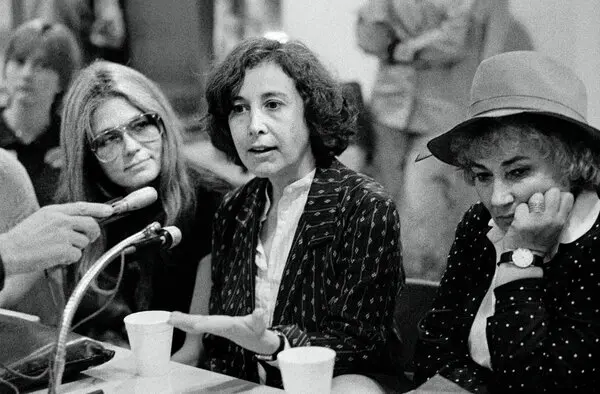Susan Brownmiller Dies at 90: Remembering a Feminist Trailblazer Who Changed the Way We Talk About Rape
Susan Brownmiller, a fearless and influential second-wave feminist author, died at 90 in New York. Emily Jane Goodman, a retired judge of the New York State Supreme Court and executrix of her will, confirmed her death. Brownmiller was ill and died in a hospital on a Saturday, leaving a legacy that had a major impact on feminist thinking and activism.
Best for her pathbreaking 1975 book Against Our Will: Men, Women and Rape, Brownmiller was more than a reporter she was a force of nature. Her writing was some of the first to put sexual violence in the public eye, in that she refused to characterize rape as an act of passion but an exercise of power, perpetrated for centuries within patriarchal systems. In it, she famously contended that the ability of men to rape and the susceptibility of women to be raped were structural facts, challenging deep-seated assumptions and compelling society to rethink sexual violence.
That book didn’t start debates – it shocked people into consciousness. Against Our Will was a national bestseller, widely read, widely taught, and well argued. Its effect was huge: it empowered survivors, launched the establishment of rape crisis centers, and helped to launch legal reforms, such as criminalizing marital rape. But it wasn’t controversy-free. Brownmiller’s concepts, especially her claims that rape existed for all men and her remarks on race and power, elicited backlash and even outrage.
Perhaps the hottest debate was over her race chapter, where she rewrote the lynching of Emmett Till, a Black teenager who was murdered in 1955. Decrying his horrific murder, she infamously faulted Till himself for having whistled at a white woman – a view many, including civil rights icon Angela Davis, condemned as racially insensitive. Years went by, and in spite of the criticism, Brownmiller defended her words, showing her independent nature and unwillingness to yield to the public.
Susan Brownmiller was born in 1935 in New York City. Her childhood was simple: her father was a sales clerk and her mother a secretary, but politics were never discussed at home. She was also delighted to share her birthday with Susan B. Anthony and was awarded a scholarship to Cornell University. Although she always dreamed of being a performer on Broadway, even going so far as to audition and work part-time as a file clerk and waitress, it was the civil rights movement that answered her soul.
Brownmiller’s activism started seriously in the 1960s. She was with the Congress of Racial Equality and part of the “Freedom Summer” of 1964, registering Black voters in Mississippi. In journalism too, this was her starter time, working for the Village Voice, ABC News, and Newsweek, applying intense scrutiny to the nexuses of politics, gender, and power.
As feminism’s “second wave” burst onto the scene in the late 1960s and ’70s, Brownmiller became one of its most powerful and unflinching voices. She walked alongside such women as Gloria Steinem, Betty Friedan, and Kate Millett, not only covering feminist issues but assisting in mapping the movement itself. Whereas the initial feminism was mainly concerned with voting rights, Brownmiller and other authors expanded the sphere of concern to encompass domestic violence, access to reproductive freedom, sexual harassment, and even the terminology employed to describe sex and gender.
Throughout her own professional working life, she never hesitated to report tough topics. Her other books were Femininity, a polemic dissection of what women demand from society, Seeing Vietnam, and Waverly Place, a novel based on a real case of child abuse that stunned the country during the 1980s. Toward the end of her life, she retreated and wrote In Our Time, an anthology of the highs and lows of the feminist movement, and My City Highrise Garden, an ode to life in New York’s Greenwich Village.
She went on to teach as well at Pace University and was involved in public discourse, though not always reluctant to utter unpopular truths. Such was the case in 2015, when she advised women not to get attacked by avoiding getting too drunk, something that landed her in trouble, even with old friends like Steinem. But that too was characteristic of Brownmiller: sharp, independent, and relentlessly candid.
In the late 1970s, Brownmiller co-founded Women Against Pornography with Steinem and Adrienne Rich. While group members were in accord on pornography’s evils, there was disagreement within on strategy. Brownmiller, consistent with her nature, insisted on protest and education rather than legal control, opposing the legislative approach embraced by some of her fellow travelers.
By the 1980s, Brownmiller had started withdrawing from the forefront of the activist circle. She acknowledged in her memoir that the feminist movement was slowly splitting on ideological grounds and criticism from society. But she recalled the earlier times fondly with respect, referring to them as a period of strong solidarity and change.
Her long-time friends, such as author Alix Kates Shulman, recall Brownmiller as an activist and an author, but as a force of life – a woman who threw raucous poker parties in her Greenwich Village home and who never ceased to challenge the establishment. Goodman, who had known her for decades, described her as an “active feminist” who never marched lock-step, even within her own camp.
Susan Brownmiller is left with a complicated, occasionally infamous but inarguably influential legacy. She spoke hard, unvarnished truths that others were afraid to utter, and her words blew open doors to conversations that continue to smolder to this day. As she once herself put it, “When the vision is clear and the sisterhood is powerful, mountains are moved and the human landscape is changed forever.” Brownmiller is gone, but the alterations she brought about are alive and well.







